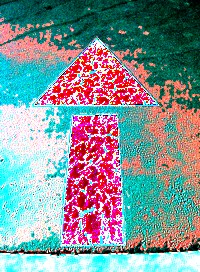A is for Attention – a mind alphabet
Written on September 3, 2007
A Mind Alphabet – I got this idea from Bella Dia’s “Encyclopedia of Me Meme” but will be adapting it to the “mind on books” theme. It seems like a good way to explore some different mind-related topics. I may do more than one topic for each letter & intersperse them among other posts.
*****
Attention – a collection of notes & resources
What is the ideal form of attention – the ability to stay in focus, or the ability to shift, strengthen and loosen focus at will?
- from Train Your Mind, Change Your Brain: How a New Science Reveals Our Extraordinary Potential to Transform Ourselves
by Sharon Begley:
Without attention, information that our senses take in – what we see and hear, feel, smell, and taste – literally does not register in the mind. It may not be stored even briefly in memory. What you see is determined by what you pay attention to. …

Paying attention physically damps down activity in neurons other than those involved in focusing on the target of your attention. … Attention, then, pumps up neuronal activity. Attention is real, in the sense that it takes a physical form capable of affecting the physical activity of the brain. [p. 158]
Begley goes on to discuss the relationship between attention and neuroplasticity, based on some experiments with monkeys in which cortical areas expanded in response to attention paid to corresponding sensory inputs.
- Mind Hacks: Tips & Tricks for Using Your Brain
Chapter 3 is on attention – how “focusing on detail is limited by both the construction of the eye and the attention systems of the brain”
– how to “count faster with subitizing”
– “feel the presence and loss of attention”
– how “sudden movement or light can grab your attention”
-“inhibition of return” = brain doesn’t like to go back for a second look
– “attentional blink” = holes in attention
– “change blindness”
– “inattention blindness”
– “negative priming”
– “improve visual attention through video games” – shortens attentional blink, increases subitizing
See also Attention archives at Mind Hacks blog - The Psychology of Consciousness
by G. William Farthing (Prentice-Hall, 1992):
The mind/brain system is continuously active. The system is motivated to maintain varied conscious experience… [and] motivated to maintain a balance between two types of conscious activity: outer-directed consciousness, which involves seeking out and responding to varied and challenging sensory inputs, and inner-directed consciousness, which involves recollection, daydreaming, and fantasizing. (p. 194)
Factors affecting attention to external events versus daydreams – priority of external stimuli, shift to daydreaming in predictable, dull, or barren environments, level of arousal (related to attention to external stimuli), individual differences.
Factors affecting direction of external attention – voluntary attention to stimuli relevant to task at hand, automatic (nonvoluntary) attention switching – to novel or intense stimuli, stimuli related to personal concerns and interests (p. 195-196)
(How does thinking fit in? attentive but inward focused, not daydreaming)
- Mind Wide Open: Your Brain and the Neuroscience of Everyday Life
, Ch. 3 on attention – excerpt at author’s blog; different skills involved in attention: variable ability to process information from different senses, ability to remain focused, put data in working memory, focus & execute series of tasks, supervisory attention control; diagram from peterme.com
- continuous partial attention – Linda Stone
- the attention economy – Read/Write Web
- one-pointed attention

- some recent books on attention:
Applied Neuropsychology of Attention: Theory, Diagnosis and Rehabilitation ed. by Michel Leclercq and Peter Zimmermann (Psychology Press, 2002)
Attention in Action: Advances from Cognitive Neuroscience ed. by Glyn Humphries and M. Jane Riddoch (Psychology Press, 2004)
Attention: Theory and Practice by Addie Johnson and Robert W. Proctor (Sage, 2003)
Cognitive Neuroscience of Attention ed. by Michael I. Posner (The Guilford Press, 2004)
Neurobiology of Attention ed. by Laurent Itti, Geraint Rees, John K. Tsotsos (Academic Press, 2005)
The Psychology of Attention, 2nd ed by Elizabeth Styles (Psychology Press, 2006)



